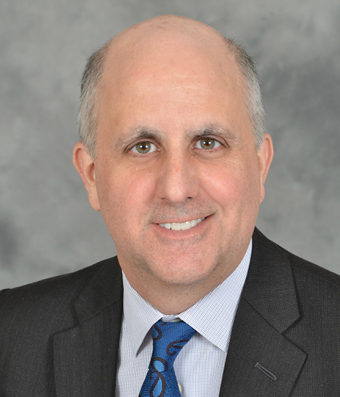Message from the President, February 2020
Where do you stand with Diversity? Having recently celebrated Martin Luther King, Jr. Day, I ask our members this question because this holiday reminds me that diversity is in many ways the fundamental component of what Dr. King stood for. If I’m correct about that, I wonder how our Bar is honoring his legacy and invite each of you to consider that question in your practice, courtroom, civic group, or daily life.
For me, this equation is relatively simple because I welcome the benefits of diversity and view the opposite of diversity as the concept known as “Groupthink,” or the conduct that flows from a group whose desire to be in harmony or conformity results in irrational or dysfunctional decision-making. Generally speaking, I attempt to avoid dysfunctional decision-making. The ideas of harmony and conformity have value in certain environments and may work for some groups or organizations, but ultimately the ability to critically evaluate ideas and to openly address unasked questions is what solves problems and makes a group as strong as it can be. In other words, diverse opinions matter and diverse ideas deserve consideration. Or, as Malcolm Forbes put it, “Diversity: the art of thinking independently together.”
So why wouldn’t we want diversity in our law practices and why do we collectively struggle with this concept? I don’t have the answers to these questions but for an interesting evaluation of this topic, I recommend a 2015 Fordham Law Review article, Diversity in the Legal Profession: Perspectives from Managing Partners and General Counsel, Volume 83, Issue 5. Therein the authors explore why the concept of diversity in law firms is applauded but in practice diversity initiatives or priorities remain varied.
… diverse opinions matter and diverse ideas deserve consideration. Or, as Malcolm Forbes put it, “Diversity: the art of thinking independently together.”
Our own North Carolina Supreme Court Chief Justice Cheri Beasley gave the keynote address to the 40th annual MLK Noon Hour Commemoration at Union Baptist Church in Winston-Salem on Monday, January 20, 2020, and reminded her audience “that where justice doesn’t serve everyone, it is not justice.” And this very simple tenet of “justice for all” in my belief is built upon the foundation of diversity. German philosopher Friedrich Nietzsche said it this way, “[t]he surest way to corrupt a youth is to instruct him to hold in higher esteem those who think alike than those who think differently.”
But there is more to this idea of diversity. Much more. For example, it seems to me that logical, success-seeking business owners would welcome diverse perspectives. In his article, The Business Case for Diversity in the Workplace Is Now Overwhelming, Vijay Eswaran explained that “[i]n …Malaysia, my home country, ethnic, cultural and religious diversity has always been promoted. By the time I was 18, I could speak five languages and had friends from Chinese, Indian, Malay and Eurasian communities.” He goes on to say that “… Malaysia … has outperformed most of its regional partners, with a high annual GDP growth….” Moreover, a 2017 Boston Consulting Group study found that companies with more diverse management teams have 19% higher revenues due to innovation.
Whatever your background, mission or motivation, I hope that the lawyers of this Association will enrich themselves by integrating diversity into their practice and their community of referrals. Or, for those already doing so, continue to embrace diversity as a fountainhead of benefit. We have much to learn and more to gain from widening our circle of friends and acquaintances, than from narrowing or stifling it. Because as humorist Will Rogers reminded us, “[e]ven if you are on the right track, you’ll get run over if you just sit still.”


